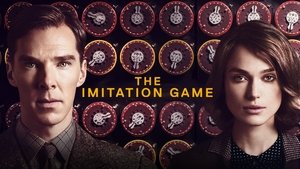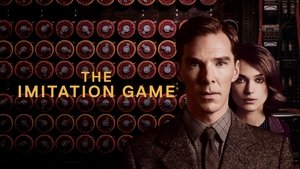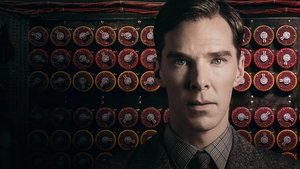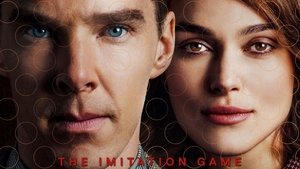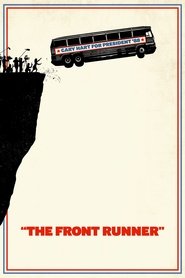Every year an unexpected film rises out of nowhere and makes its mark on the awards season race. While Morten Tyldum's The Imitation Game hung quietly on prognosticators' radars, none expected it to capture the highly coveted People's Choice Award at TIFF, a recognition that instantly catapults the film into the heart of the Best Picture race. Previous winners of the award include powerhouse titles such as Slumdog Millionaire, The King's Speech, Silver Linings Playbook and 12 Years a Slave, so it's easy to understand the significance of such an achievement. But a larger and more important question continues loom over The Imitation Game, can the film hold off a barrage of Oscar-worthy competitors that are still awaiting their releases?
Brilliant mathematician Dr. Alan Turing (played by Benedict Cumberbatch) is summoned to interview with military officials during the German expansion of World War II. Alan is selected as part of a secretive unit tasked with one important mission, to break the most sophisticated encryption machine the world has ever seen. Understanding that human trial and error has no chance of breaking Germany's Enigma code, Dr. Turing develops an advanced computing machine that helps the allied forces defeat the Nazis and changes the world forever.

The Imitation Game has all the makings of an Oscar-caliber film. Director Morten Tyldum brings to life an amazing true story filled with obstacles and complexities that briskly carry the feature from start to finish. And at its core rests a worthy lead, Benedict Cumberbatch, whose intricacies perfectly capture the mind of a mathematician. As a professor of mathematics at a state university in Pennsylvania, I have a first-hand view into such thinkers and Cumberbatch sells the role extremely well. Everything from Alan Turing's difficulties handling social settings to his full-fledged cognitive arrogance. Although I personally felt some of the moments were slightly overacted, Cumberbatch undoubtedly gives an accomplished performance alongside other stellar turns from castmates Keira Knightley and Matthew Goode. With yet another beautiful score from Alexandre Desplat and solid direction from Tyldum, The Imitation Game is an all-around formidable piece of cinema that will certainly find its way into many Oscar discussions.

Although The Imitation Game is a strong piece of filmmaking on various levels, one unfair criticism would be that the feature never really amazes in any particular area. Actually, the movie feels like a bit of a conundrum. For example, I commend the uptempo pacing of Tyldum's work, yet more interesting ideas and controversies surrounding Alan Turing's personal life become glossed over in order to achieve a more fluid viewing experience. While such decisions unarguably ease the responsibilities of both the filmmaker and the screenwriter, The Imitation Gamebecomes merely a partially told story that feels like a slight disservice to such a marvelous and significant man who has left his impression on the modern technological world.
All in all The Imitation Game is an unquestionable crowd-pleaser filled with humor, drama and everything in between. Dr. Alan Turing was a pioneer in the world of technology and a mathematical genius who helped defeat the Nazis. His story of heroics is one that is told very well throughout the film and one that everyone should know, so do yourself a favor and seek out The Imitation Game when it reaches theatres in December.
-
 NameBenedict CumberbatchCharacterAlan Turing
NameBenedict CumberbatchCharacterAlan Turing -
 NameKeira KnightleyCharacterJoan Clarke
NameKeira KnightleyCharacterJoan Clarke -
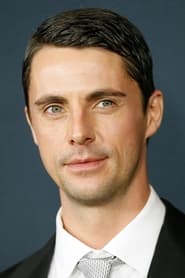 NameMatthew GoodeCharacterHugh Alexander
NameMatthew GoodeCharacterHugh Alexander -
 NameRory KinnearCharacterDetective Robert Nock
NameRory KinnearCharacterDetective Robert Nock -
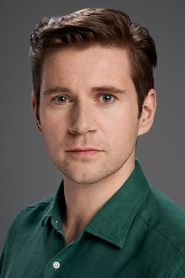 NameAllen LeechCharacterJohn Cairncross
NameAllen LeechCharacterJohn Cairncross -
 NameMatthew BeardCharacterPeter Hilton
NameMatthew BeardCharacterPeter Hilton -
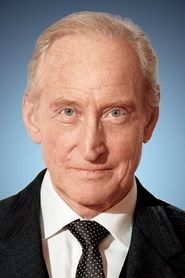 NameCharles DanceCharacterCommander Denniston
NameCharles DanceCharacterCommander Denniston -
 NameMark StrongCharacterStewart Menzies
NameMark StrongCharacterStewart Menzies -
 NameJames NorthcoteCharacterJack Good
NameJames NorthcoteCharacterJack Good -
 NameTom Goodman-HillCharacterSergeant Staehl
NameTom Goodman-HillCharacterSergeant Staehl -
 NameSteven WaddingtonCharacterSuperintendent Smith
NameSteven WaddingtonCharacterSuperintendent Smith -
 NameIlan GoodmanCharacterKeith Furman
NameIlan GoodmanCharacterKeith Furman -
 NameJack TarltonCharacterCharles Richards
NameJack TarltonCharacterCharles Richards -
 NameAlex LawtherCharacterYoung Alan Turing
NameAlex LawtherCharacterYoung Alan Turing -
 NameJack BannonCharacterChristopher Morcom
NameJack BannonCharacterChristopher Morcom -
 NameTuppence MiddletonCharacterHelen
NameTuppence MiddletonCharacterHelen -
 NameDominic CharmanCharacterSherborne Student 1
NameDominic CharmanCharacterSherborne Student 1 -
 NameJames G. NunnCharacterSherborne Student 2
NameJames G. NunnCharacterSherborne Student 2 -
 NameCharlie MantonCharacterSherborne Student 3
NameCharlie MantonCharacterSherborne Student 3 -
 NameDavid CharkhamCharacterJoan's Father
NameDavid CharkhamCharacterJoan's Father -
 NameVictoria WicksCharacterJoan's Mother
NameVictoria WicksCharacterJoan's Mother -
 NameAndrew HavillCharacterTeacher
NameAndrew HavillCharacterTeacher -
 NameLaurence KennedyCharacterHeadmaster
NameLaurence KennedyCharacterHeadmaster -
 NameTim van EykenCharacterMI6 Agent
NameTim van EykenCharacterMI6 Agent -
 NameWill BowdenCharacterMilitary Policeman
NameWill BowdenCharacterMilitary Policeman -
 NameMiranda BellCharacterMargaret
NameMiranda BellCharacterMargaret -
 NameTim SteedCharacterElectrical Assistant
NameTim SteedCharacterElectrical Assistant -
 NameHayley Joanne BaconCharacterWoman in Crowd (uncredited)
NameHayley Joanne BaconCharacterWoman in Crowd (uncredited) -
 NameNicholas BlattCharacterMinistry Man (uncredited)
NameNicholas BlattCharacterMinistry Man (uncredited) -
 NameAncuta BreabanCharacterWren (uncredited)
NameAncuta BreabanCharacterWren (uncredited) -
 NameAlex Corbet BurcherCharacterDancer (uncredited)
NameAlex Corbet BurcherCharacterDancer (uncredited) -
 NameGrace CalderCharacterAssistant Wren (uncredited)
NameGrace CalderCharacterAssistant Wren (uncredited) -
 NameRichard CampbellCharacterCrossword Man in Pub (uncredited)
NameRichard CampbellCharacterCrossword Man in Pub (uncredited) -
 NameDaniel ChappleCharacterMI6 Agent (uncredited)
NameDaniel ChappleCharacterMI6 Agent (uncredited) -
 NameLisa ColquhounCharacterJoan Clarke's Friend (uncredited)
NameLisa ColquhounCharacterJoan Clarke's Friend (uncredited) -
 NameAlexander CooperCharacterBletchley Park Agent (uncredited)
NameAlexander CooperCharacterBletchley Park Agent (uncredited) -
 NameLeigh DentCharacterPasserby (uncredited)
NameLeigh DentCharacterPasserby (uncredited) -
 NameSam ExleyCharacterMilitary Policeman 3 (uncredited)
NameSam ExleyCharacterMilitary Policeman 3 (uncredited) -
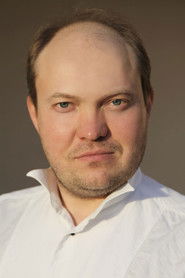 NameDennis GoodCharacterCivilian (uncredited)
NameDennis GoodCharacterCivilian (uncredited) -
 NameDebra Leigh-TaylorCharacterEvacuee (uncredited)
NameDebra Leigh-TaylorCharacterEvacuee (uncredited) -
 NameStuart MatthewsCharacterBletchley Park Operative (uncredited)
NameStuart MatthewsCharacterBletchley Park Operative (uncredited) -
 NameJoseph OliveiraCharacterMI6 Agent (uncredited)
NameJoseph OliveiraCharacterMI6 Agent (uncredited) -
 NameDavid G. RobinsonCharacterPolice Sergeant White (uncredited)
NameDavid G. RobinsonCharacterPolice Sergeant White (uncredited) -
 NameMark UnderwoodCharacterCrossword Man (uncredited)
NameMark UnderwoodCharacterCrossword Man (uncredited) -
 NameNicola-Jayne WellsCharacterFirst Aid Nurse (uncredited)
NameNicola-Jayne WellsCharacterFirst Aid Nurse (uncredited) -
 NameJosh WichardCharacterGerman Pilot (uncredited)
NameJosh WichardCharacterGerman Pilot (uncredited) -
 NameJoshua WichardCharacterGerman Spy Plane Pilot (uncredited)
NameJoshua WichardCharacterGerman Spy Plane Pilot (uncredited)
-
 NameMorten TyldumJobDirector
NameMorten TyldumJobDirector -
 NameAlexandre DesplatJobOriginal Music Composer
NameAlexandre DesplatJobOriginal Music Composer -
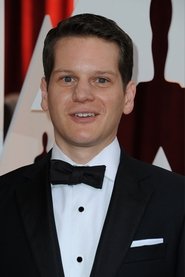 NameGraham MooreJobWriter
NameGraham MooreJobWriter -
 NameAlbert CarrerasJob"A" Camera Operator
NameAlbert CarrerasJob"A" Camera Operator -
 NameTim BattersbyJobFirst Assistant "A" Camera
NameTim BattersbyJobFirst Assistant "A" Camera -
 NameSimon SurteesJobSecond Assistant "A" Camera
NameSimon SurteesJobSecond Assistant "A" Camera -
 NameJames ManningJobSecond Assistant Director
NameJames ManningJobSecond Assistant Director -
 NameRory MolesJobFirst Assistant "B" Camera
NameRory MolesJobFirst Assistant "B" Camera -
 NameCrispin ReeceJobSecond Unit Director
NameCrispin ReeceJobSecond Unit Director -
 NameAndrew HodgesJobBook
NameAndrew HodgesJobBook -
 NameMarc Gómez del MoralJob"B" Camera Operator
NameMarc Gómez del MoralJob"B" Camera Operator -
 NamePhil BoothJobFirst Assistant Director
NamePhil BoothJobFirst Assistant Director -
 NameAlexandra VoikouJobSecond Assistant "B" Camera
NameAlexandra VoikouJobSecond Assistant "B" Camera -
 NameGary HutchingsJobKey Grip
NameGary HutchingsJobKey Grip -
 NameSteven HallJobSecond Unit Director of Photography
NameSteven HallJobSecond Unit Director of Photography -
 NameGraham MooreJobExecutive Producer
NameGraham MooreJobExecutive Producer -
 NameMaria DjurkovicJobProduction Design
NameMaria DjurkovicJobProduction Design -
 NameRebecca MiltonJobArt Direction
NameRebecca MiltonJobArt Direction -
 NameTeddy SchwarzmanJobProducer
NameTeddy SchwarzmanJobProducer -
 NameSammy SheldonJobCostume Design
NameSammy SheldonJobCostume Design -
 NamePeter HeslopJobCo-Producer
NamePeter HeslopJobCo-Producer -
 NameWilliam GoldenbergJobEditor
NameWilliam GoldenbergJobEditor -
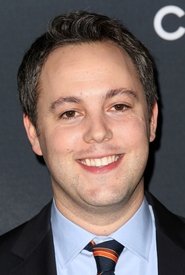 NameIdo OstrowskyJobProducer
NameIdo OstrowskyJobProducer -
 NameÓscar FauraJobDirector of Photography
NameÓscar FauraJobDirector of Photography -
 NameNora GrossmanJobProducer
NameNora GrossmanJobProducer -
 NameMarco Anton RestivoJobArt Direction
NameMarco Anton RestivoJobArt Direction -
 NameNina GoldJobCasting
NameNina GoldJobCasting -
 NameJoe BealJobSound Effects Editor
NameJoe BealJobSound Effects Editor -
 NameAmy RileyJobMakeup Artist
NameAmy RileyJobMakeup Artist -
 NameMartin JensenJobSound Re-Recording Mixer
NameMartin JensenJobSound Re-Recording Mixer -
 NameRoo MauriceJobMakeup Artist
NameRoo MauriceJobMakeup Artist -
 NameAndy KennedyJobSound Designer
NameAndy KennedyJobSound Designer -
 NamePeter BurgisJobFoley
NamePeter BurgisJobFoley -
 NameDenise KumJobMakeup Artist
NameDenise KumJobMakeup Artist -
 NameLauren Briggs-MillerJobAssistant Art Director
NameLauren Briggs-MillerJobAssistant Art Director -
 NameNicky Ackland-SnowJobConstruction Coordinator
NameNicky Ackland-SnowJobConstruction Coordinator -
 NameEran BarneaJobVisual Effects Supervisor
NameEran BarneaJobVisual Effects Supervisor -
 NameLucy Ainsworth-TaylorJobVisual Effects Producer
NameLucy Ainsworth-TaylorJobVisual Effects Producer -
 NameAngela BarsonJobVisual Effects Supervisor
NameAngela BarsonJobVisual Effects Supervisor -
 NameJack EnglishJobStill Photographer
NameJack EnglishJobStill Photographer -
 NamePeter WignallJobSteadicam Operator
NamePeter WignallJobSteadicam Operator -
 NameJonathan CollardJobDigital Intermediate
NameJonathan CollardJobDigital Intermediate -
 NameKirsty WhalleyJobMusic Editor
NameKirsty WhalleyJobMusic Editor -
 NameBeverly WinstonJobScript Supervisor
NameBeverly WinstonJobScript Supervisor -
 NameStuart HillikerJobSound Re-Recording Mixer
NameStuart HillikerJobSound Re-Recording Mixer -
 NameLee WalpoleJobSupervising Sound Editor
NameLee WalpoleJobSupervising Sound Editor -
 NameSarah ShepherdJobDialect Coach
NameSarah ShepherdJobDialect Coach -
 NameRichard GeorgeJobLocation Manager
NameRichard GeorgeJobLocation Manager -
 NameSuzie ShearerJobProduction Manager
NameSuzie ShearerJobProduction Manager -
 NameNick DentJobSupervising Art Director
NameNick DentJobSupervising Art Director -
 NameRobert MessingerJobThanks
NameRobert MessingerJobThanks -
 NameJohn MidgleyJobSound Recordist
NameJohn MidgleyJobSound Recordist -
 NameTatiana MacdonaldJobSet Decoration
NameTatiana MacdonaldJobSet Decoration -
 NameDan GreenJobDialogue Editor
NameDan GreenJobDialogue Editor -
 NameNick ThomasJobProperty Master
NameNick ThomasJobProperty Master -
 NameCharis TheobaldJobGraphic Designer
NameCharis TheobaldJobGraphic Designer -
 NameKatie Anna BradyJobVFX Artist
NameKatie Anna BradyJobVFX Artist -
 NameLevan DoranJobStunts
NameLevan DoranJobStunts -
 NameMatt CurtisJobTitle Designer
NameMatt CurtisJobTitle Designer -
 NameChris LyonsJobSpecial Effects Makeup Artist
NameChris LyonsJobSpecial Effects Makeup Artist
-
Trailer
-
Trailer
-
Trailer
-
Trailer
-
Trailer
-
Clip
-
Clip
-
Clip
-
Clip
-
Clip
-
Clip
-
Teaser
-
Teaser
-
Featurette
-
Featurette
-
Featurette
-
Featurette
-
Featurette
-
Featurette
-
Featurette
-
Featurette
-
Featurette
-
Featurette





